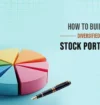Stock Market Crash: Investors Lose Rs 6 Lakh Crore
The stock market has experienced a dramatic crash today, with investors losing a staggering Rs 6 lakh crore. In the wake of this unprecedented decline, major indices such as the Sensex and Nifty have plunged sharply, affecting the Stock Market today. This crash has sent shockwaves across the financial world, prompting analysts to reassess market dynamics and investor sentiment.
Overview of the Stock Market Crash
The recent downturn in the stock market is one of the most severe in recent history. The collapse has wiped out trillions in market capitalization and left investors reeling. Both the Sensex and Nifty indices recorded significant drops, reflecting a loss of confidence among market participants. As the Stock Market today grapples with uncertainty, many are questioning the underlying causes and long-term implications of this crash.
Economic experts attribute the crash to a combination of global uncertainties, tightening monetary policies, and internal market corrections. The rapid fall in equity valuations has forced investors to reassess risk, leading to widespread sell-offs. This has compounded the challenges for the stock market, making it a topic of intense scrutiny.
Factors Contributing to the Market Decline
Global Economic Pressures
One of the primary drivers behind the stock market crash is global economic pressure. With rising interest rates in key economies, international investors have pulled back, leading to capital outflows. The negative sentiment in global markets has had a cascading effect on domestic indices such as the Sensex and Nifty. Increased geopolitical tensions and supply chain disruptions have further destabilized the Stock Market today.
Domestic Policy Shifts
Changes in government policy and regulatory uncertainties have also played a role in the recent market volatility. Uncertainty regarding fiscal policies, tax reforms, and regulatory oversight has contributed to a cautious stance among investors. As a result, the stock market has seen increased volatility, with major indices like the Sensex and Nifty reflecting the anxiety prevailing in the market.
Corporate Earnings and Investor Sentiment
A decline in corporate earnings, coupled with overvalued stocks, has put additional pressure on the stock market. Several high-profile companies have reported disappointing quarterly results, leading to a loss of investor confidence. The plunge in earnings expectations has particularly affected the Sensex and Nifty, two of the most closely watched indicators of market performance. Consequently, the Stock Market today has experienced a massive sell-off, contributing to the Rs 6 lakh crore loss.
Impact on Key Indices: Sensex and Nifty
The fallout from the crash is most evident in the performance of the Sensex and Nifty. Historically seen as barometers of the stock market, these indices have suffered significant setbacks:
- Sensex: The Bombay Stock Exchange’s flagship index has fallen sharply, erasing months of gains. The steep decline in Sensex reflects a broad-based sell-off across various sectors.
- Nifty: Similarly, the National Stock Exchange’s Nifty index has taken a hit, with multiple sectors underperforming. Both indices are now under pressure as investors seek safer assets amid the downturn.
The simultaneous drop in both Sensex and Nifty underscores the extent of the market panic and has heightened concerns about the stability of the stock market today.
Broader Economic Impact
Investor Losses and Market Volatility
The loss of Rs 6 lakh crore in market capitalization has had a profound impact on investor portfolios. Institutional investors, retail traders, and mutual fund managers are all facing significant setbacks. The massive devaluation has led to increased market volatility, with swings becoming more frequent and severe.
Ripple Effects on the Economy
The collapse in the stock market has far-reaching consequences beyond immediate investor losses. Reduced market confidence can lead to lower consumer spending and hesitancy among businesses to invest in growth initiatives. This slowdown may affect overall economic performance, as key sectors rely on robust market conditions to drive expansion. With the Stock Market today in a state of flux, policymakers and regulators are under pressure to implement measures that can restore stability.
Impact on Retirement and Savings
For many investors, especially those with significant retirement savings in equity funds and market-linked pension schemes, the crash poses serious long-term risks. The erosion of portfolio values not only affects current wealth but also impacts future financial security. As the stock market continues to decline, concerns about the adequacy of retirement savings and the sustainability of long-term investments are rising.
What’s Next for the Stock Market?
Recovery Prospects
While the current state of the stock market is grim, experts remain cautiously optimistic about a potential recovery. Historically, markets have rebounded after major corrections, and various factors, including monetary easing and fiscal stimulus, could pave the way for stabilization. However, the recovery process may be slow and uneven, with key indices like the Sensex and Nifty taking time to regain lost ground.
Policy Interventions
Regulators and policymakers are expected to intervene to restore confidence in the stock market. Potential measures include adjustments in interest rates, fiscal stimulus packages, and regulatory reforms aimed at stabilizing market operations. The focus will be on ensuring that the Stock Market today can recover while minimizing long-term damage to the economy.
Investor Strategies
Investors are advised to reassess their portfolios and consider diversification to hedge against further market declines. A focus on quality stocks, coupled with a long-term investment strategy, may help mitigate risks. The recent crash serves as a reminder of the inherent volatility in the stock market and underscores the importance of sound financial planning.
Conclusion
The recent crash in the stock market, which led to investor losses amounting to Rs 6 lakh crore, has sent shockwaves across the financial ecosystem. With major indices like the Sensex and Nifty experiencing sharp declines, the Stock Market today is under intense scrutiny. However, despite the significant losses, there are opportunities for recovery as policymakers and investors work together to stabilize and rebuild market confidence.
The evolving landscape calls for strategic adjustments, cautious optimism, and resilient investment approaches. As the stock market gradually recovers, investors must stay informed, adapt their strategies, and prepare for a new phase of market dynamics.
FAQs on the Stock Market Crash
Q1: What were the main factors behind the stock market crash?
A1: The crash was driven by global economic pressures, domestic policy uncertainties, and disappointing corporate earnings, which severely affected indices like the Sensex and Nifty.
Q2: How has the crash impacted the Sensex and Nifty?
A2: Both indices have seen significant declines, reflecting widespread investor panic and a loss of confidence in the overall stock market today.
Q3: What strategies can investors adopt to mitigate losses in the current stock market environment?
A3: Investors should diversify their portfolios, focus on quality stocks, and consider long-term investment strategies while staying updated on policy interventions and market trends.



